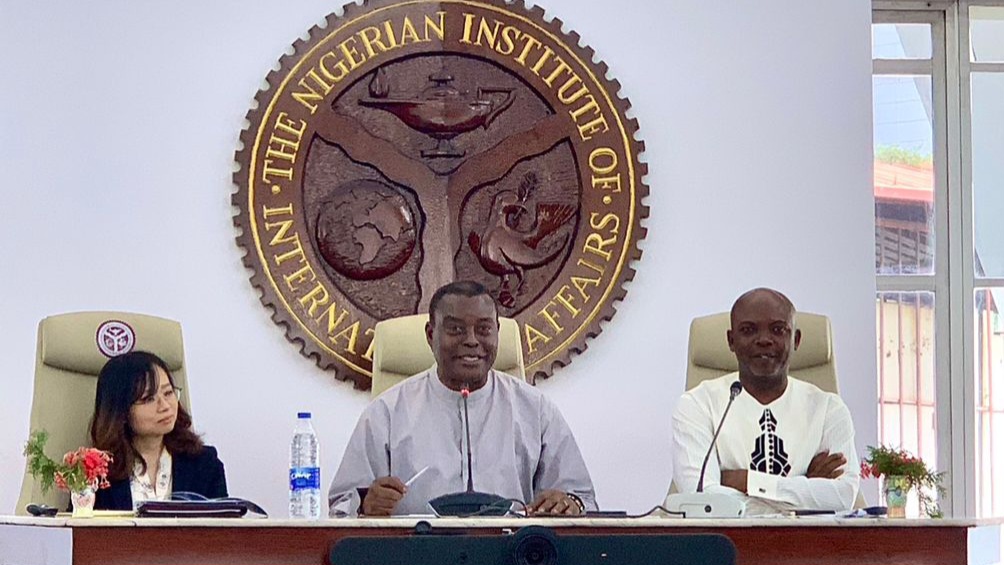
Director General, Nigerian Institute of International Affairs (NIIA), Prof. Eghosa Osaghae, has emphasised the role of collective action, solidarity and integration in driving Africa’s interest in global politics.
He said that Africa must be more united in purpose and character, strengthened by humanitarian values that underpin the continent’s position on many issues.
This was at the Joint Seminar on Making Sense of Security in a Turbulent World organised by NIIA and The Embassy of Korea Republic in Lagos.
He said Nigeria has good relations with Korea, fueled by commonalities of history, especially colonial past and economic foundations.
“Korea is an example of what global partnership can do and for Nigeria, the country represents the power of partnership, where two nations come together to achieve things that are mutually beneficial.
“Nigeria can be stronger than what it is today and I think this is what countries like Korea have recognised that’s why they place a great premium on relations,” Osaghae said.
Deputy Head of Missions, Korean Embassy, Ms. Lee Jungeun, said the seminar comes at an important time where the world is faced with cyber threats, climate change and other insecurity challenges.
Although Russia’s war with Ukraine, and conflict between China and America have their numerous effects, factors like advanced technology have made it more complicated and difficult to solve these conflicts,” she said.
She noted that Nigeria has clarified that it would play its role in ensuring peace and security in the region and the Republic of Korea is of the same stance.
Speaking on Korea’s National Security Strategy with focus on its strategy for Regional and Global Peace, Jungeun said the country is committed to defending its national sovereignty and building peace on the peninsula.
She added that they are willing to support Africa by contributing to freedom, peace and the continent’s security objectives.
Senior Researcher, NIIA, Prof Femi Otubanjo, said history is the key to unlocking the seemingly persistent global tension.
He, however, said that the Russia-Ukraine and Israel-Hamas wars contain ingredients of escalation that constitutes turbulence in the world.
He explained that America’s dominant doctrine on being the world power, embedded even in its foreign policy, is a factor for global insecurity, adding that Russia’s resurgence and China’s rise to power has destabilised America and the West.
“The insecurity of the world is a result of conflict over power, which confers the privilege to request and acquire, however power transition cannot be stopped. The impotence of the United Nations will continue to undermine global peace management and improbable doctrines and agenda aimed at stopping the trajectory of history will fail but continue to stir conflicts and wars,” he said.
Otubanjo stated that the world is in turmoil and would continue that way as long as dialectics persists in beliefs, perspectives, philosophies and interests, so far as there are no global arrangements or effectiveness.
Speaking on Korea’s National Security Strategy, with focus on its strategy for strengthening relationships with Africa, Associate Professor, Korea National Diplomatic Academy, Kim Dong-suk, said some African countries are experiencing economic growth as an aftermath of COVID-19 and Russia-Ukraine, in addition to the advantage of having youth population.
Adding that federalism, which is practiced in a number of African countries like Nigeria, Tanzania, contributes to political stability, he explained that with a combination of these potentials, many countries like America and China have heightened interest in Africa, which some experts have expressed concern over, saying another scramble for Africa is at hand.
Stating that the Korean economy started growing under an authoritarian government, he added that they invested in their human resources as they had no natural resources.
According to Dong-suk, the Republic of Korea and Africa have historic similarities.
“The post independence period for South Korea was difficult but aid from international communities was helpful.
We borrowed money to build infrastructures, so we have a moral obligation to help underdeveloped countries develop.”
“So we are investing in establishing genuine win-win relations, contributing to stability, conflict resolution and supporting African governments in improving electoral systems,” he said.
Speaking on Nigeria’s role in regional security amid ongoing challenges, Head, Division of Security and Strategic Studies, NIIA, Prof. Joshua Bolarinwa, said that stability in Nigeria will determine stability in the West African sub-region.
He said that from the early 90s till now, Nigeria has been in charge of the security architecture of the ECOWAS sub region, as she houses the ECOWAS Headquarters in Asokoro, Abuja.
“Nigeria funds the budget of ECOWAS to the tune of 60 per cent or more and has always provided directions, visions and leadership to the ECOWAS subregion.
“From ECOMOG in Liberia, Sierra Leone, Guinea, Conakry, Cote D’Ivoire, Togo, Benin Republic, up to our immediate neighbours in Chad and Cameroon, Nigeria has always provided leadership, but more especially in the ECOWAS sub region,” he added.
Follow our socials Whatsapp, Facebook, Instagram, Twitter, and Google News.








